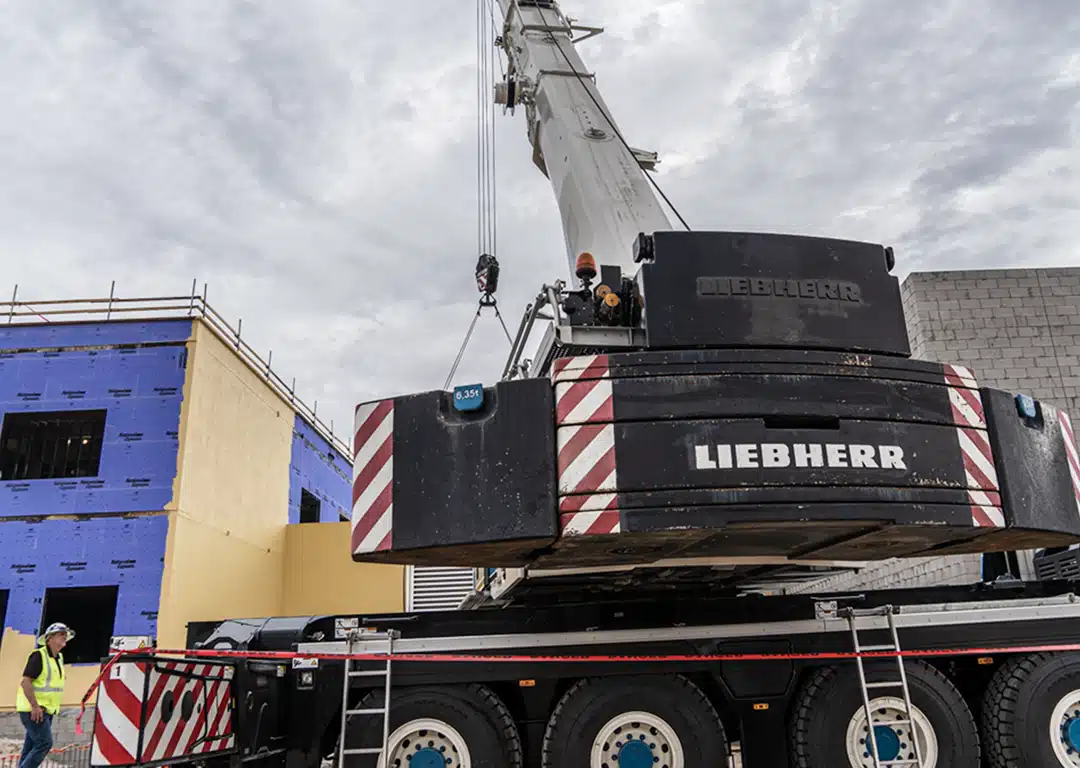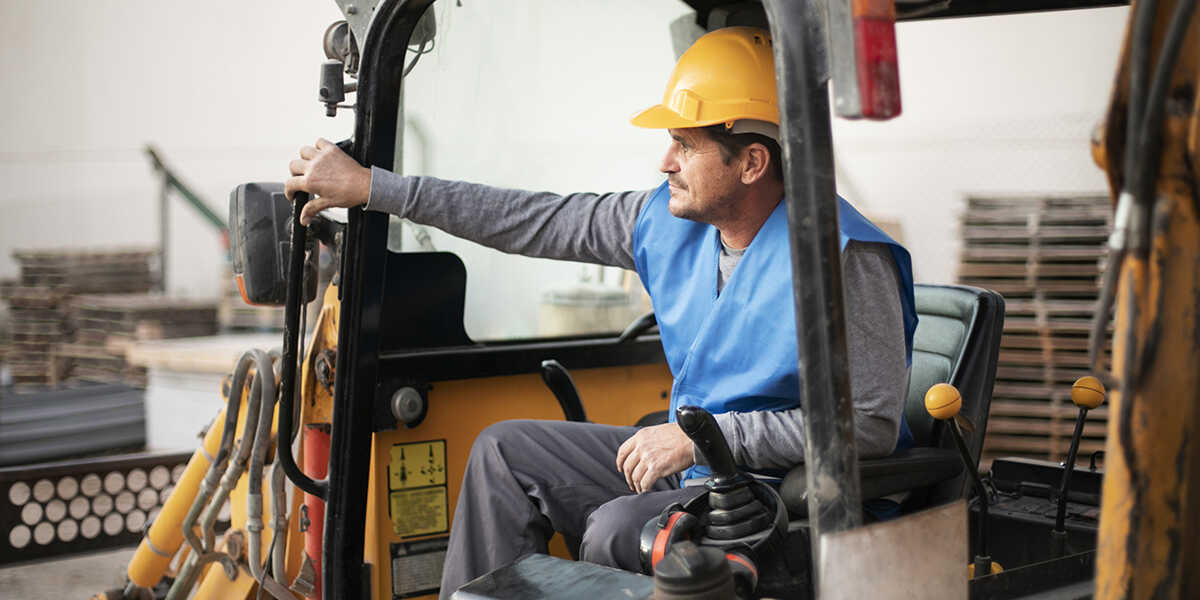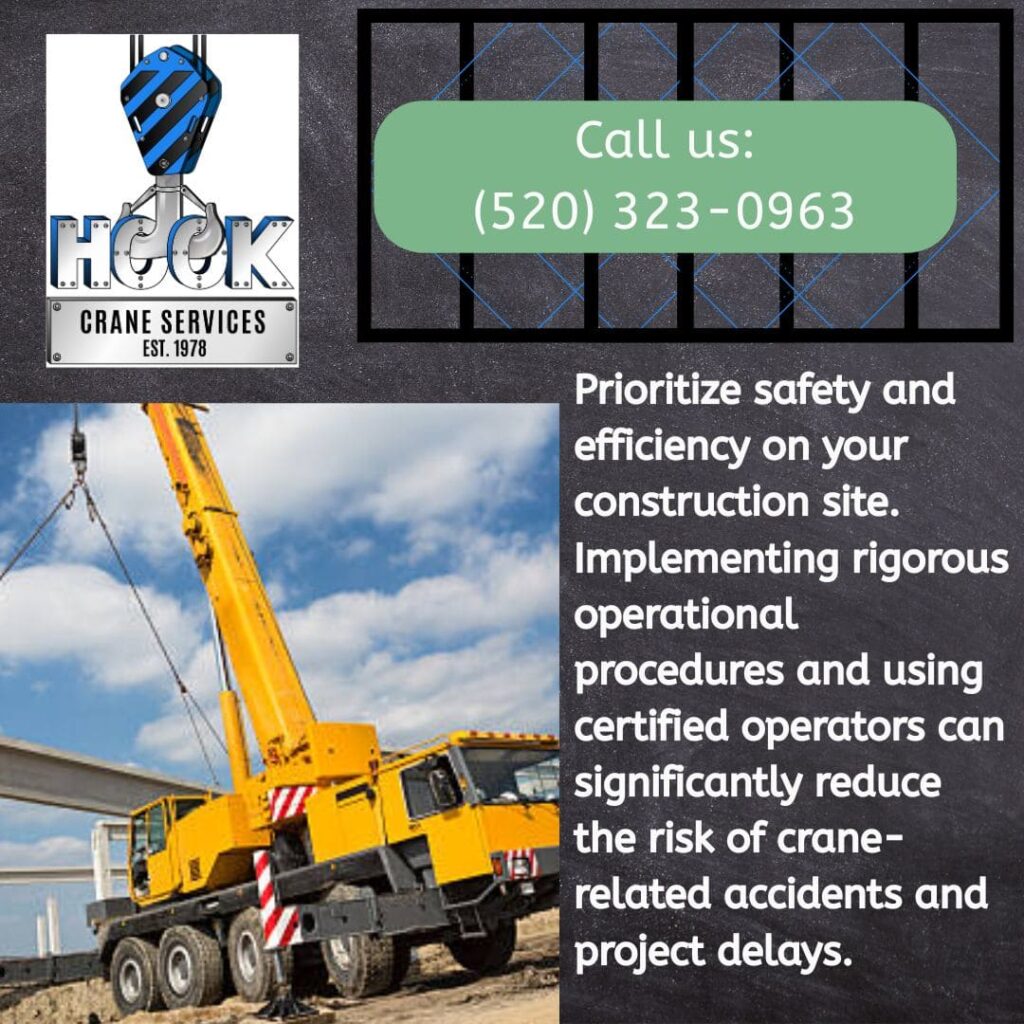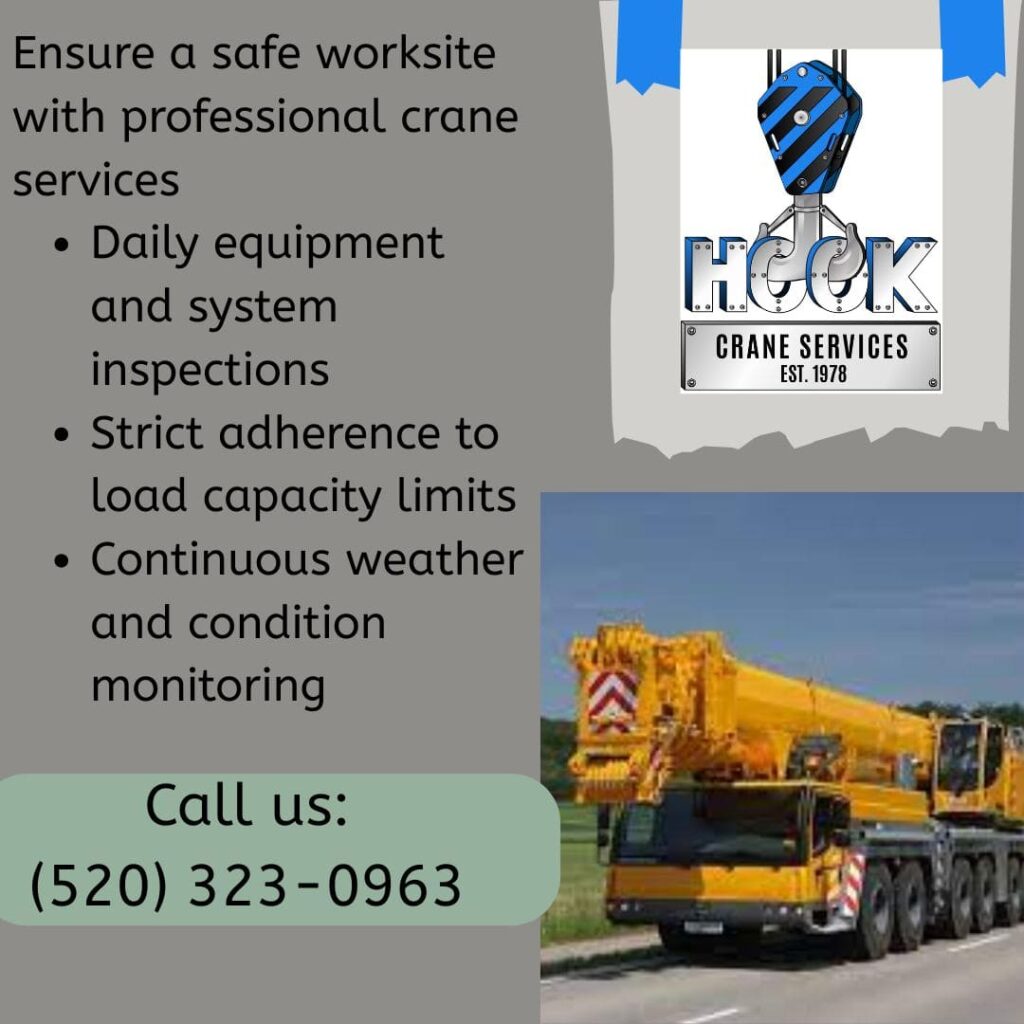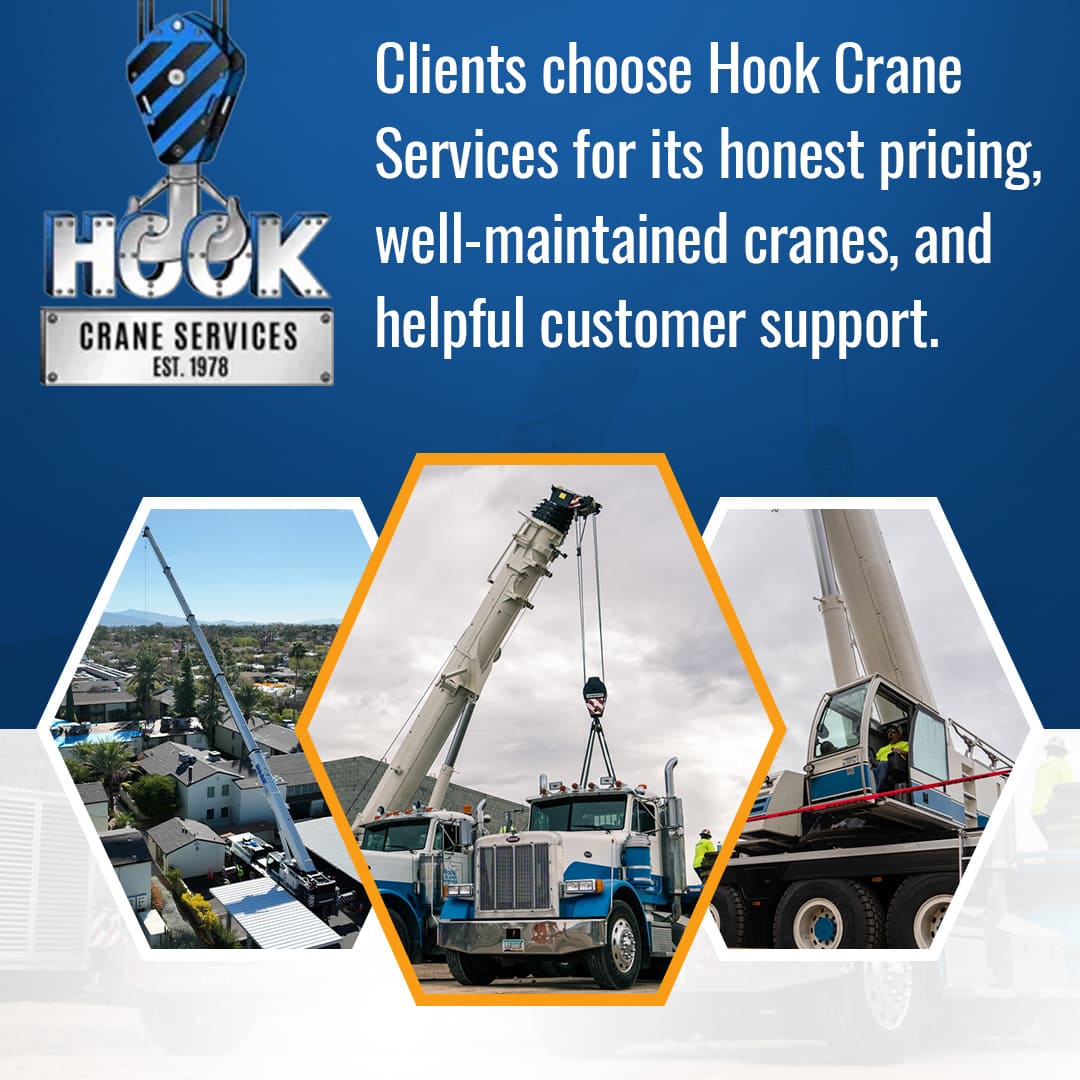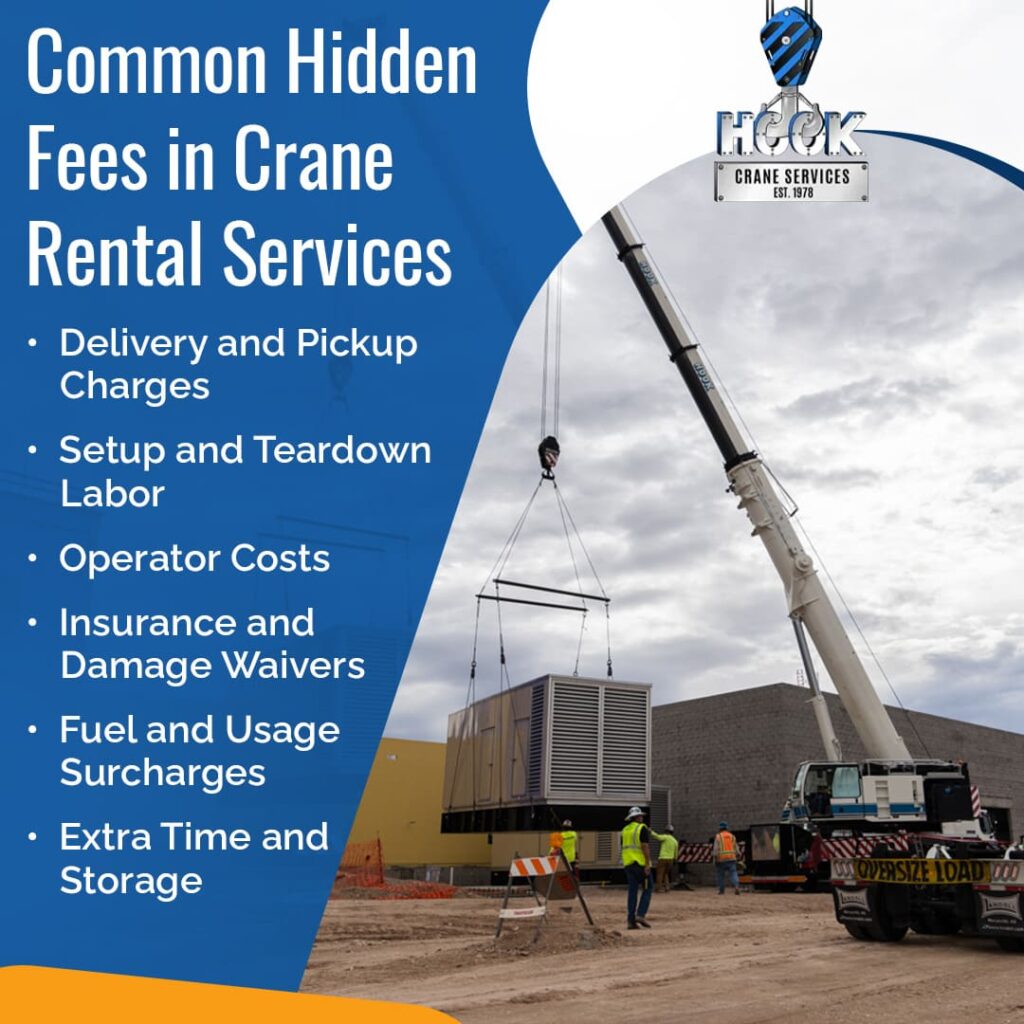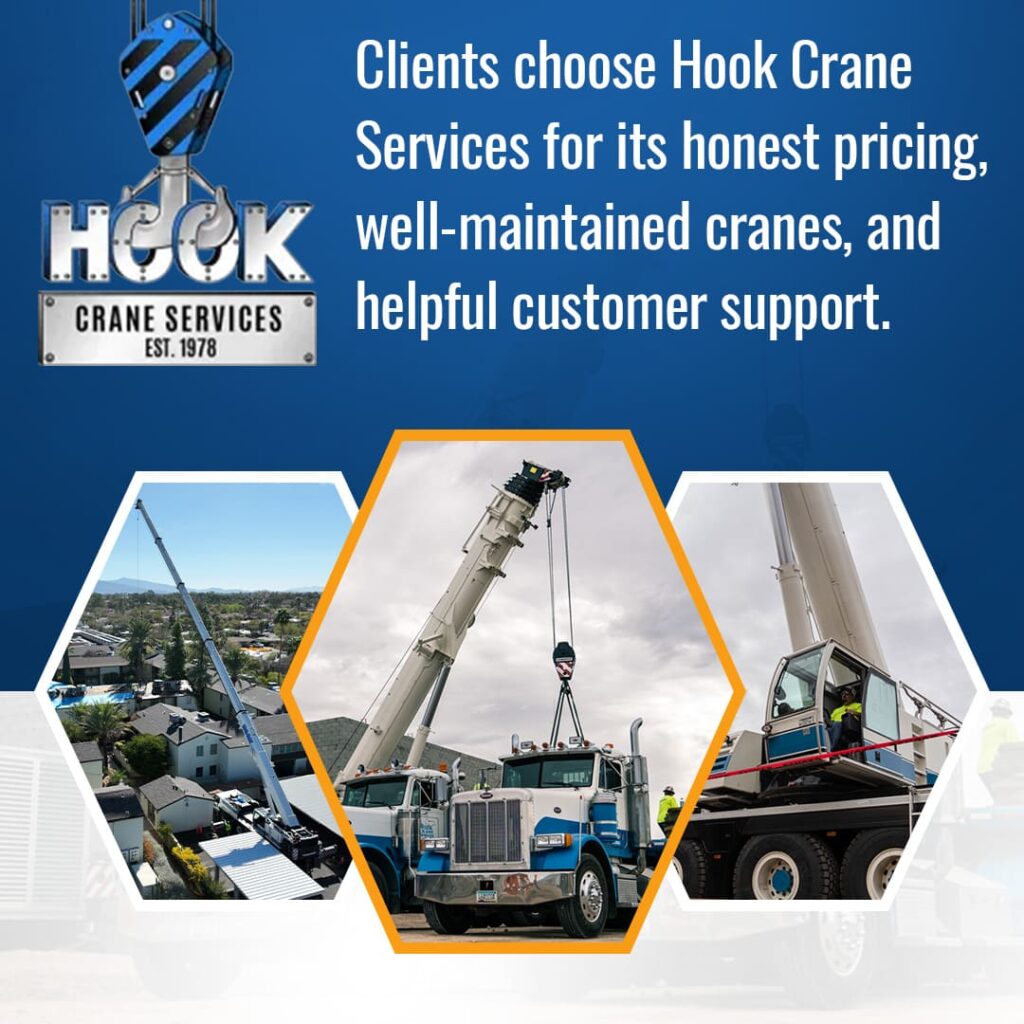Key Factors That Affect Crane Service Costs for Your Construction Project
Looking for accurate crane service cost information for your construction project? Construction managers and project coordinators face budget challenges when selecting crane services without knowing the key cost factors. Crane service costs typically range from $200 to $1,500 per hour, depending on crane size, project duration, location, and additional services required.
At Hook Crane Services, we’ve helped Tucson construction teams budget effectively for over four decades. Our experience with diverse projects from residential builds to commercial installations gives us insight into what drives crane service pricing. We’ll break down the specific factors that impact your crane service investment so you can make ideal decisions for your next project.
Key Takeaways:
- Crane size directly impacts hourly rates – plan capacity needs carefully to avoid overpaying.
- Certified operators cost more upfront but prevent expensive accidents and delays.
- Book crane services during off-peak periods for 15-25% cost savings.
- Local crane companies reduce mobilization costs and provide faster emergency response.
- Longer project durations qualify for better daily and weekly rate discounts.
- Proper planning and equipment selection can save 20-35% on total project costs.
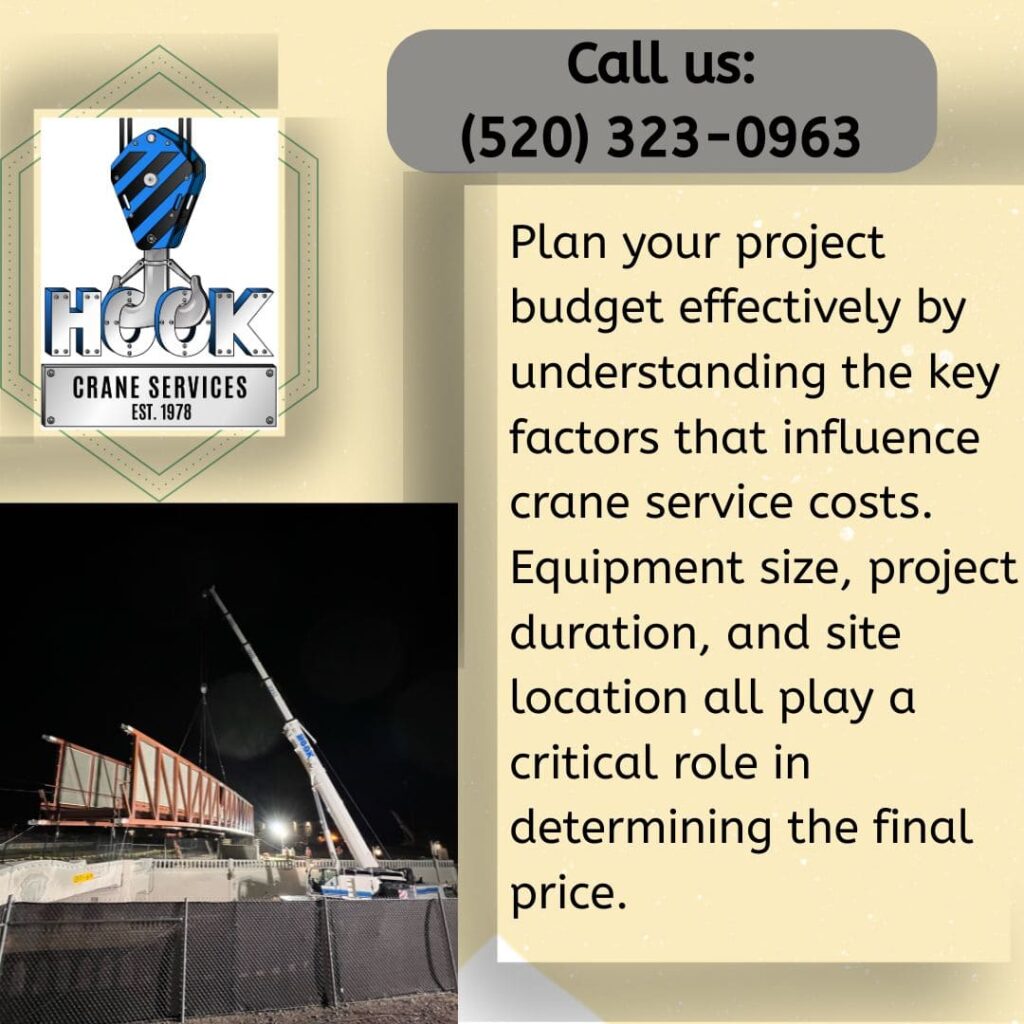
Main Cost Factors That Determine Crane Service Pricing
Crane Size and Lifting Capacity
Crane size directly correlates with hourly rates. Smaller boom trucks cost less than large mobile cranes with extended reach capabilities.
Our 17-ton boom truck with a 90-foot boom serves residential projects at lower rates. Meanwhile, our 165-ton crane with 260-foot boom commands premium pricing for complex commercial work.
Crane services companies price equipment based on:
- Maximum lifting capacity
- Boom length requirements
- Jib attachment needs
- Counterweight specifications
Capacity-Based Pricing Structure
Different capacity ranges create distinct price tiers:
- Light-duty cranes (10-25 tons): Handle HVAC installations and small construction tasks. These crane services offer the most economical hourly rates.
- Medium-duty cranes (30-70 tons): Support general construction and industrial projects. Mid-range pricing reflects increased capability and operating costs.
- Heavy-duty cranes (80+ tons): Manage large-scale construction and infrastructure projects. Premium pricing reflects specialized equipment and operator expertise.
Project Duration and Scheduling
Project length considerably impacts total crane service costs. Longer projects often receive better hourly rates through volume discounts.
Half-day minimums typically apply for most crane services. Full-day rates become more economical for extended projects requiring sustained crane presence.
Rush projects or emergency calls incur premium charges. Planning with crane service companies helps secure standard rates and preferred scheduling.
Duration-Based Rate Adjustments
- Hourly rates: Standard pricing for projects under four hours
- Daily rates: Better value for full-day commitments
- Weekly rates: Substantial savings for extended project timelines
- Monthly rates: Maximum savings for long-term construction phases
Geographic Location and Travel Costs
Location affects both base rates and additional charges. Urban areas typically have higher crane service rates than rural locations.
Travel distance from our Tucson facility influences total project costs. Projects within our primary service area avoid additional mobilization charges.
Crane service companies factor these location elements into pricing:
- Base rate variations by market
- Mobilization and demobilization charges
- Travel time for operators and equipment
- Permit requirements for different jurisdictions
Our locations in Catalina Foothills, Green Valley, Marana, Oro Valley, Safford, Vail, and Willcox help minimize travel costs across Southern Arizona.
Operator Certification and Safety Requirements
NCCCO and MSHA-certified operators command higher wages. These certifications reflect advanced skills and safety knowledge that protect your project.
Safety compliance adds value through reduced risk and insurance benefits. Certified operators prevent accidents that could halt construction and create liability issues.
According to the Bureau of Labor Statistics, crane operators earn competitive wages across the construction industry. While the BLS does not break out earnings by certification, industry sources indicate that operators holding specialized credentials often command 15–25% higher pay than their non-certified peers, directly influencing project costs and service rates.
Additional Services That Impact Total Costs
Rigging and Setup Services
Professional rigging services add 20-40% to base crane costs. Complex lifts requiring specialized rigging equipment and techniques increase overall project expenses.
Our rigging services include:
- Load calculation and planning
- Specialized lifting equipment
- Safety harnesses and fall protection
- Multi-crane coordination for heavy lifts
Equipment Transportation and Setup
Crane transportation to your job site involves specific costs. Large cranes require special permits and escort vehicles for highway travel.
Setup time varies based on:
- Ground conditions and preparation needs
- Outrigger positioning requirements
- Boom assembly for larger cranes
- Safety zone establishment
We handle all transportation logistics and permitting for your project’s convenience.
Permit and Insurance Requirements
Local permits add fixed costs to crane service projects. Different jurisdictions require specific permits for crane operations and street closures.
Insurance requirements vary by project type:
- General liability coverage
- Equipment damage protection
- Worker compensation compliance
- Additional insured certificates
Market Factors Affecting Crane Service Pricing
Construction Industry Demand
High construction activity increases crane service rates. Peak building seasons create equipment shortages that drive up pricing.
Economic conditions influence construction demand. Strong regional growth in commercial development and infrastructure projects affects equipment availability across Tucson and the surrounding areas.
Seasonal patterns impact pricing:
- Spring through fall: Peak demand periods
- Winter months: Reduced activity and better rates
- Holiday periods: Limited availability and premium charges
Equipment Availability and Maintenance
Well-maintained equipment reduces project delays and costs. Regular maintenance prevents breakdowns that could extend your project timeline.
Our modern fleet of 14 cranes receives preventive maintenance following manufacturer specifications. This reliability protects your project schedule and budget.
Equipment age affects:
- Breakdown frequency and repair time
- Fuel efficiency and operating costs
- Safety features and compliance
- Insurance and liability factors
Fuel Costs and Operating Expenses
Fuel price fluctuations directly impact crane service rates. Large cranes consume significant fuel during operation and transportation.
Operating expense categories include:
- Diesel fuel for crane operation
- Transportation fuel costs
- Equipment insurance premiums
- Maintenance and repair expenses
These costs get factored into hourly rates and adjusted based on current market conditions.
How to Budget Effectively for Crane Services
Getting Accurate Project Estimates
Request detailed quotes from multiple crane service companies. Compare pricing structures and include services for accurate budget planning.
Provide these details when requesting estimates:
- Lift weight and dimensions
- Required reach and height
- Project duration and schedule
- Site access and ground conditions
We provide transparent pricing with no hidden charges for your budget planning needs.
Timing Your Project for Best Rates
Schedule crane services during off-peak periods for savings. Winter months and weekdays typically offer better rates than peak construction seasons.
Book equipment well in advance for:
- Better rate negotiations
- Preferred scheduling options
- Equipment availability guarantees
- Reduced rush charges
Comparing Service Providers
Evaluate crane service companies beyond just hourly rates. Consider operator expertise, equipment condition, safety records, and customer service quality.
Key comparison factors:
- Operator certifications and experience
- Equipment age and maintenance records
- Safety performance and insurance coverage
- Customer references and project success
Hook Crane Services has maintained an excellent safety record since 1978, providing value through reliable performance and risk reduction.
Why Hook Crane Services Delivers Superior Value for Your Project
Our Company History and Growth
Hook Crane Services started in 1978 with two employees and one 10-ton boom truck. Our founder built the company on reliability and customer service principles that continue today.
We’ve grown into Southern Arizona’s leading crane service company through consistent performance and safety excellence. Our expansion from a small operation to managing 14 modern cranes reflects our commitment to meeting growing construction demands.
Over four decades, Hook Crane Services has completed thousands of projects across residential and commercial sectors. We’ve built lasting relationships with contractors, construction companies, and project managers throughout the region.
Our Modern Equipment Fleet
Our crane inventory covers lifting capacities from 17 tons to 165 tons. Each crane receives regular maintenance and safety inspections to protect your project timeline.
Our equipment lineup includes:
- 17 Ton Boom Truck: 90-foot boom and jib for residential and light commercial work
- 40 Ton Crane: 125-foot boom and jib for medium construction projects
- 50 Ton Crane: 150-foot boom and jib for general construction applications
- 70 Ton Crane: 175-foot boom and jib for larger commercial builds
- 90 Ton Crane: 201-foot boom and jib for industrial installations
- 130 Ton Crane: 235-foot boom and jib for heavy construction projects
- 165 Ton Crane: 260-foot boom and jib for complex commercial developments
Certified Operators and Safety Standards
All Hook Crane Services operators hold NCCCO and MSHA certifications. These credentials demonstrate our commitment to safety and operational excellence.
Our professional team includes:
- Certified crane operators with decades of experience
- Trained riggers for complex lifting operations
- Licensed drivers for equipment transportation
- Job coordinators for project management support
Safety remains our top priority on every project. We maintain comprehensive insurance coverage and follow strict safety protocols to protect workers and property.
Service Areas and Coverage
Hook Crane Services operates throughout Southern Arizona from multiple strategic locations. Our coverage areas include Catalina Foothills, Green Valley, Marana, Oro Valley, Safford, Vail, and Willcox.
This geographic presence reduces mobilization costs and travel time for your projects. We respond quickly to emergency calls and maintain excellent on-time performance records.
Types of Projects We Handle
Our crane services support diverse construction and industrial applications. We’ve completed projects ranging from residential HVAC installations to major commercial developments.
Project categories include:
- Residential construction and renovations
- Commercial building construction
- Industrial equipment installation
- HVAC and cooling tower placement
- Cell tower construction and maintenance
- Power plant equipment installation
- Well site equipment changes
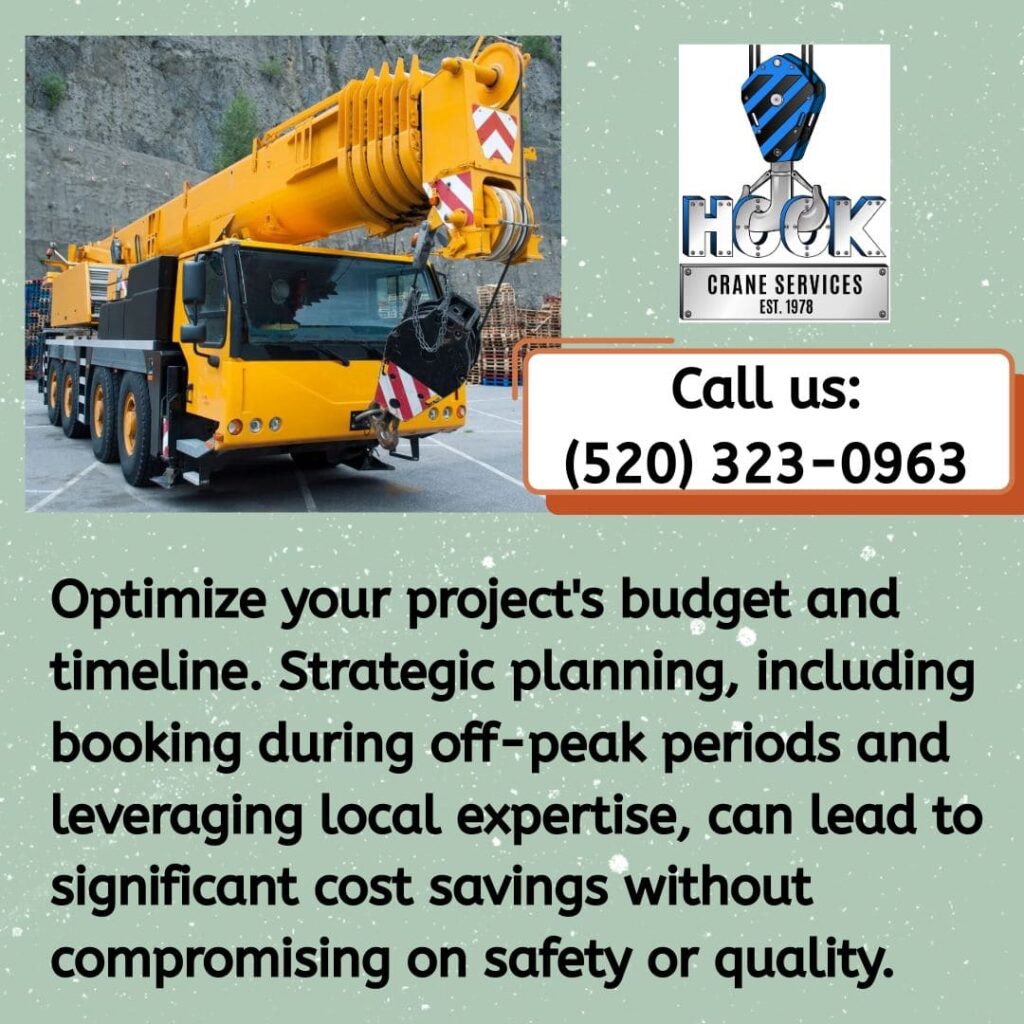
Customer Testimonials and Reputation
Hook Crane Services has earned recognition for professional service and problem-solving abilities. Our customers appreciate our responsive communication and reliable project completion.
Client feedback highlights our strengths:
- Professional coordination with multiple contractors
- Punctual service and accident-free performance
- Quick response times for emergencies
- Reasonable pricing with transparent cost structures
Partner with Experienced Crane Services for Long-Term Value
Our experience, equipment, and safety record make us the preferred crane services company in Tucson. We understand local construction challenges and regulatory requirements.
Competitive advantages include:
- 45+ years of successful crane operations
- Modern, well-maintained equipment fleet
- Certified operators with extensive training
- Comprehensive insurance and safety compliance
- Strategic locations throughout Southern Arizona
- 24-hour emergency service availability
Building lasting relationships with quality crane service companies creates long-term cost benefits. We work with contractors throughout Southern Arizona to provide consistent, reliable service that keeps projects on schedule and within budget.
Our commitment to safety, certified operators, and modern equipment helps construction teams complete projects efficiently while maintaining the highest safety standards. Contact Hook Crane Services today at (520) 323-0963 or hookcrane@hookcrane.com for accurate cost estimates tailored to your specific project requirements.
